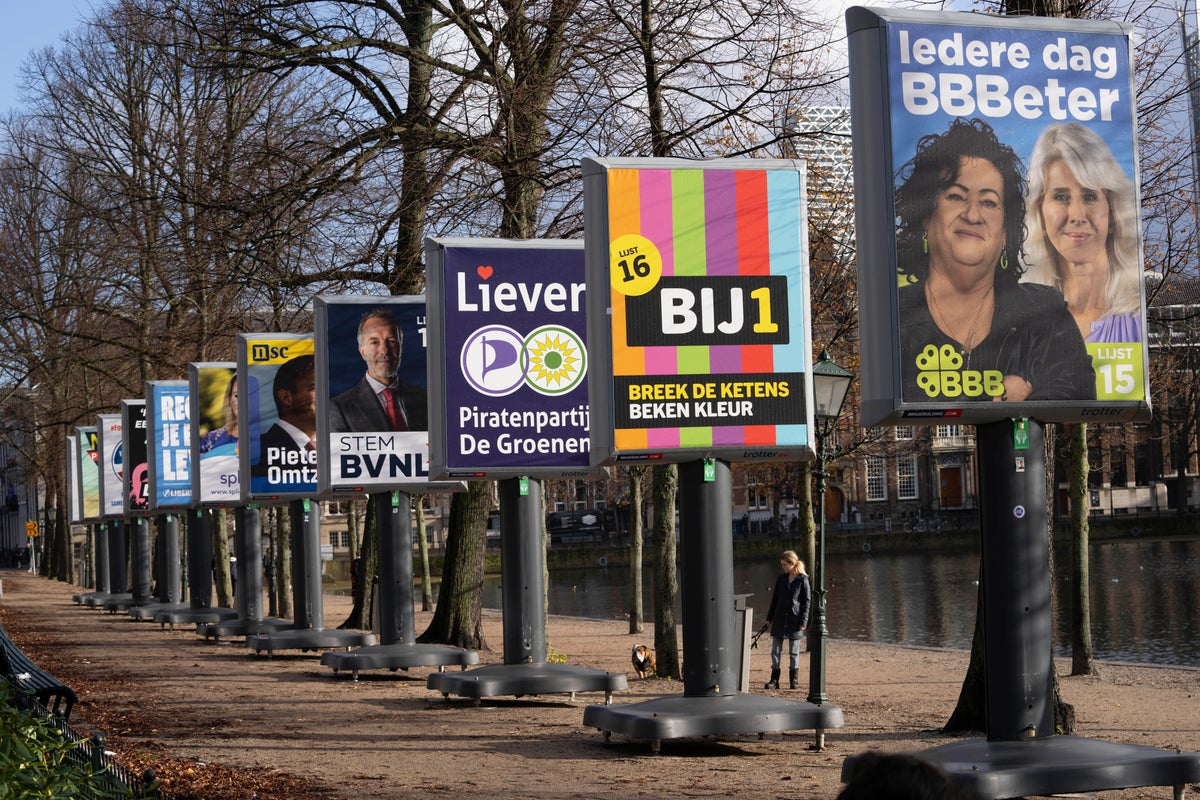
Dutch political leaders sought support from undecided voters in frantic campaigning Tuesday, on the eve of a general election that will change the face of the country’s politics after 13 years of leadership by Prime Minister Mark Rutte.
Pollsters were predicting a knife-edge vote with four parties across the political spectrum vying to become the largest bloc in the 150-seat lower house of parliament.
Rutte's fourth and final coalition resigned in July after it failed to agree on measures to rein in migration. Rutte subsequently said he would not seek re-election but he remains in power as caretaker prime minister until a new coalition is formed — a process that could take months.
The vote could provide the Netherlands with its first ever female prime minister — the new leader of Rutte's People's Party for Freedom and Democracy (VVD) is 46-year-old Dilan Yeşilgöz-Zegerius, a former refugee who now advocates cracking down on immigration.
But also polling strongly in the final days of the campaign is veteran lawmaker Geert Wilders, who has toned down his trademark strident anti-Islam rhetoric in campaigning in favor of promoting policies aimed at halting asylum-seekers from entering the Netherlands and tackling the cost-of-living crisis and housing shortages.
One poll Tuesday even put Wilders’ Party for Freedom, or PVV, in first place, very narrowly ahead of the VVD.
A center-left bloc of the Labor Party and Green Left also was in a three-way race to win the vote. Its leader, former European Union climate chief Frans Timmermans, was in his home city of Maastricht campaigning at the city's university.
Were Wilders' party to win the most seats, he would take the lead in moves to form a new ruling coalition in this nation where the voting system all but guarantees that no single party wins an overall majority.
If he does, he shouldn't count on the support of Yeşilgöz-Zegerius.
Asked Tuesday on NPO Radio 1 if she would serve in a Cabinet led by Wilders, she replied: “I don't see that happening.”
“The Netherlands is looking for a leader who can unite the country ... who is for all Dutch people, who can lead our country internationally," she added. "I also don't see that Mr. Wilders could build a majority.”
Wilders said the comments were a sign that the VVD fears his party could win the vote.
“Panic at the VVD. The PVV is getting too big for them,” he said in a statement urging supporters to make his party the biggest. The closest Wilders has come to power previously was when he agreed to support Rutte's first coalition without actually joining the Cabinet.
Meanwhile Thierry Baudet, leader of the far-right Forum for Democracy, was back in parliament on Tuesday after being attacked at a campaign event Monday night by a man who hit him on the head with a beer bottle.
“I was very lucky,” Baudet told reporters, saying the attack did not seriously injure him. A small wound was visible above his left eye.
“I see it as a political attack,” he said, adding that “we must continue with our campaign.”
Polls suggest that Baudet's party, once seen as a rising star of the populist far right, will win a handful of seats Wednesday.
The New Social Contract party, set up over the summer by lawmaker Pieter Omtzigt, was trailing slightly behind the top three contenders.







